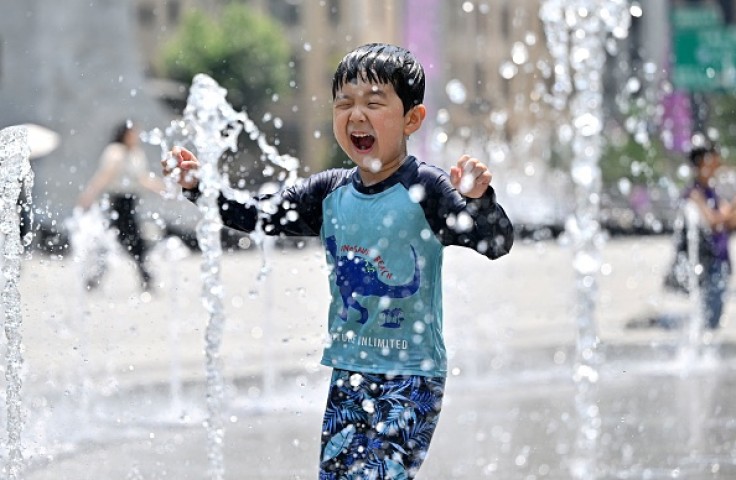
South Korea, a country with the world's lowest fertility rate, is experiencing a growing debate over the wisdom of implementing "no-kids zones." These zones, which restrict children from places such as cafes and restaurants, have gained popularity in recent years and are aimed at providing disturbance-free environments for adults. However, concerns are emerging regarding the impact of these zones on the country's demographic challenges.
With one of the fastest-aging populations globally and a fertility rate that dropped to a record low of 0.78 last year, South Korea faces significant demographic and economic issues.
According to CNN, the country's struggles to fund pensions and healthcare for a growing number of retirees with a shrinking workforce are exacerbating the problem. Critics argue that adding more barriers for young people to start families, amidst existing challenges such as high real estate costs and economic anxiety, may not be the solution the country needs.
South Korea Grapples with Aging Population and Lowest Fertility Rate
While the South Korean government has spent over $200 billion in the past 16 years on encouraging childbirth, some believe that societal attitudes toward the young need to change rather than rely solely on financial incentives.
According to Washington Post, critics highlight the need for a societal transformation that embraces and supports children rather than excluding them from public spaces.
Recent developments have indicated a potential shift in public opinion. Yong Hye-in, a mother and lawmaker for the Basic Income Party, made headlines by bringing her 2-year-old son to a meeting of the National Assembly, challenging the exclusion of children from such spaces. The pushback against no-kid zones has gained momentum, and even Jeju Island, a popular tourist destination, debated a bill to make these zones illegal.
Critics argue that no-kids zones not only harm the country's reputation for hospitality but also violate the right to equality and constitute age discrimination. In 2017, the National Human Rights Commission of Korea stated that these zones were in conflict with the constitution's prohibition of discrimination based on gender, religion, or social status. However, changing mindsets remains a challenge, as the ongoing popularity of no-kids zones reflects deep-rooted attitudes and intolerance toward those who are different.
Advocates Suggest Alternative Approaches to Address Concerns
South Korea's embrace of no-kid zones is believed to have stemmed from a 2012 incident in which a child was scalded by hot broth in a restaurant. Social media discussions about parental responsibility and public behavior led to the emergence of these zones in various establishments.
Furthermore, South Korea has witnessed the rise of other age-specific zones, including no-teenager, no-senior, and even no-middle-aged zones. A strong pro-business sentiment exists in the nation, which often motivates such zoning requirements to prevent disturbances to other customers.
To address the population crisis, reexamining these mindsets and promoting inclusivity is crucial. Experts argue that intolerance toward those who are different from oneself, including mothers in public spaces, contributes to young women's reluctance to have children. Lawmaker Yong, who experienced discrimination as a new mother, aims to create a society where working moms are not stigmatized and childcare becomes a shared responsibility.
While legislation and equality bills are being considered, proponents suggest that businesses can make positive changes by avoiding no-kid zones and learning from other countries that prioritize family-friendly policies. Proposed alternatives include designated no-kids times instead of permanent exclusion, allowing families with children until a certain time of day, after which the venue becomes adults-only.
Ultimately, striking a balance between the needs of parents and non-parents is essential. Finding a middle ground and fostering a society that supports and values children are vital steps towards addressing South Korea's demographic challenges.
Related Article : South Korea and China Top List of Most Expensive Places For Child Care